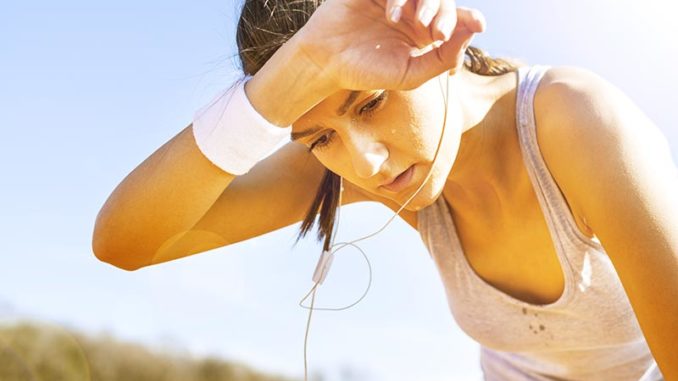
We all know it’s a good idea to grab a snack after any kind of exercise – but what, exactly, happens to your body if you don’t?
Finished your morning workout or your evening cardio class or your lunch gym session but don’t have time to grab a bite before heading out the door? That could be a problem.
It’s usually a good idea to eat and drink within 30min of exercising to maximize those recovery benefits and regain energy. While you may be short on time and find yourself occasionally skipping a post-workout snack, your overall caloric and nutrient intake must support the demands you’re placing on your body.
Of course, waiting a little longer to eat after a workout won’t do much harm in the short run, but if you make a habit of doing it, it can potentially lead to compromised health and workout performance over time, says Susan Besser, M.D., a Primary Care Provider specializing in family medicine with Mercy Personal Physicians in Baltimore, MD.
“This doesn’t happen right away. It’s a cumulative problem, so just missing one meal won’t do it,” she says. But if you exercise in the morning in particular and then don’t eat for a few hours, your body doesn’t have the energy stores to work with, which means you’ll have low energy until you get some fuel to power through the remainder of the day.
Getty Immages
1. Low blood sugar and lightheadedness.
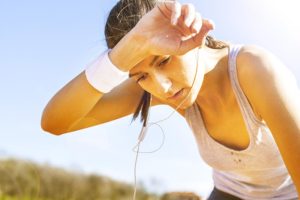
If you exercise in the morning or early evening without eating and replenishing within a few hours, “your body will take stored energy,” Besser says. First, it will dip into your glycogen stores, which your body uses to keep blood sugar levels stable, she says. Glycogen will get replaced as you replenish your energy stores, but it takes time, so your body may be short-changed for a while.
As the brain tries to conserve energy, it’s forced to slow some of its functions, Besser says. If the brain runs out of sugar, it can’t immediately tap into other sources, so function decreases — hence the feeling of lightheadedness, or feeling faint, if you haven’t eaten for a while.
Getty Image
2. Muscle loss and cramping.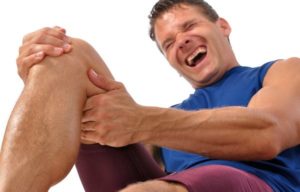
Eventually, your body runs out of glycogen. “Then it has to move on to a less readily available sources of energy, like fat or, if there isn’t fat on board, muscle,” she explains.
Obviously, if your body is degrading muscle to use for energy, you could potentially lose muscle mass and get weaker. If you’ve just sweat a lot, you also probably lost a ton of electrolytes, which can lead to muscle cramping. That’s pretty much the opposite of what you are trying to do with all that exercise, right?
Getty Image
3. Dehydration.
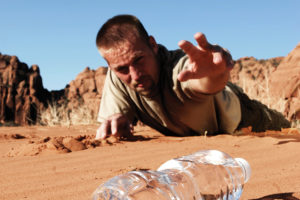
Don’t wait until…….
If you don’t eat or drink, you’ll remain dehydrated after your workout. Just exercising alone, even under optimal conditions (not extreme heat, for instance) causes an increase in sweat and dehydration, she says.
If you don’t replace the fluid, it will cause electrolyte imbalances, which can cause heart arrhythmias or palpitations in severe cases, as the body needs electrolytes for proper heart and muscle function. “But this isn’t going to happen unless you are chronically undernourished and then stressing the body with exercise,” Besser explains, “or if you take a diuretic, which can cause electrolyte imbalance.”
That’s why and what we use in SlimAndFitClub
Before-/during-/after exercise
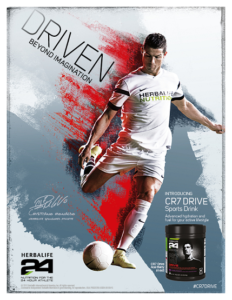 The best thing you can do is stay hydrated. For example with our Pre-Exercise CR7 hydration drink for best results. Water will do, however CR7 enhance hydration and contains metabolism-supporting vitamin B12 for energy. It is a blend of vital electrolytes like sodium, potassium and magnesium. This will help you to stay hydrated.
The best thing you can do is stay hydrated. For example with our Pre-Exercise CR7 hydration drink for best results. Water will do, however CR7 enhance hydration and contains metabolism-supporting vitamin B12 for energy. It is a blend of vital electrolytes like sodium, potassium and magnesium. This will help you to stay hydrated.
You’ll want to drink water or CR7 before a workout too, to get the body in a hydrated state to prepare for sweating it out.
Watch the video
Post exercise recovery drink
After exercise we promote our Formula 1 recovery drink mixed with some orange juice. The Formula 1 contains a perfect mix of vitamins, minerals, fibre and protein to support your recovery and overall muscle strength. The added Orange juice will give you some carbs (sugar) to quickly boost your energy (short term) where the F1 will add on for the long term energy and recovery.
 Ask us for more specific information
Ask us for more specific information

Leave a Reply
You must be logged in to post a comment.